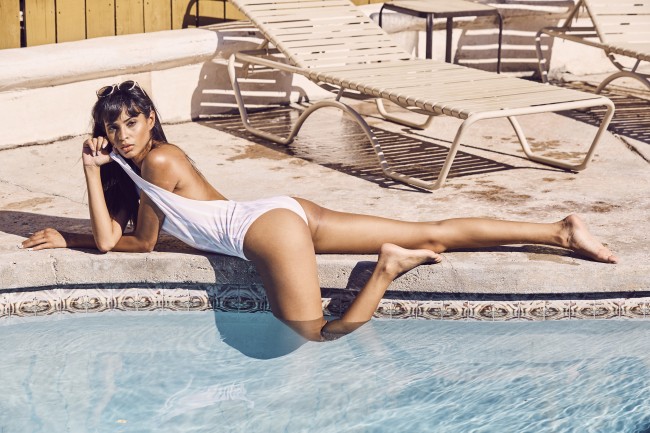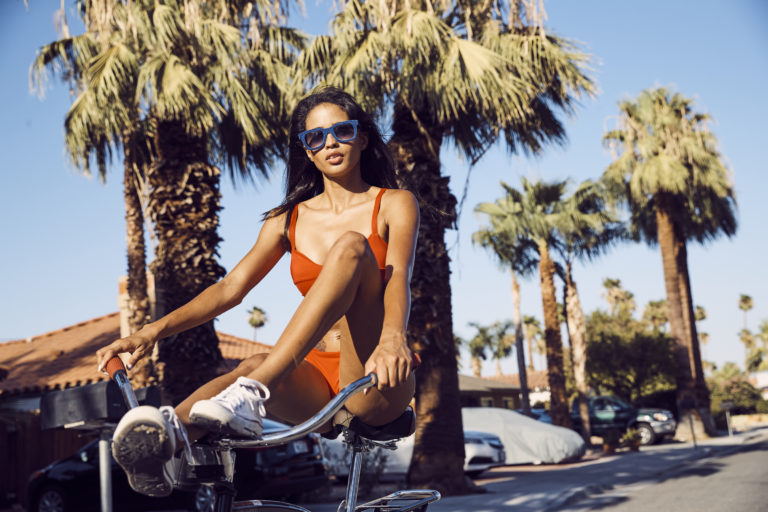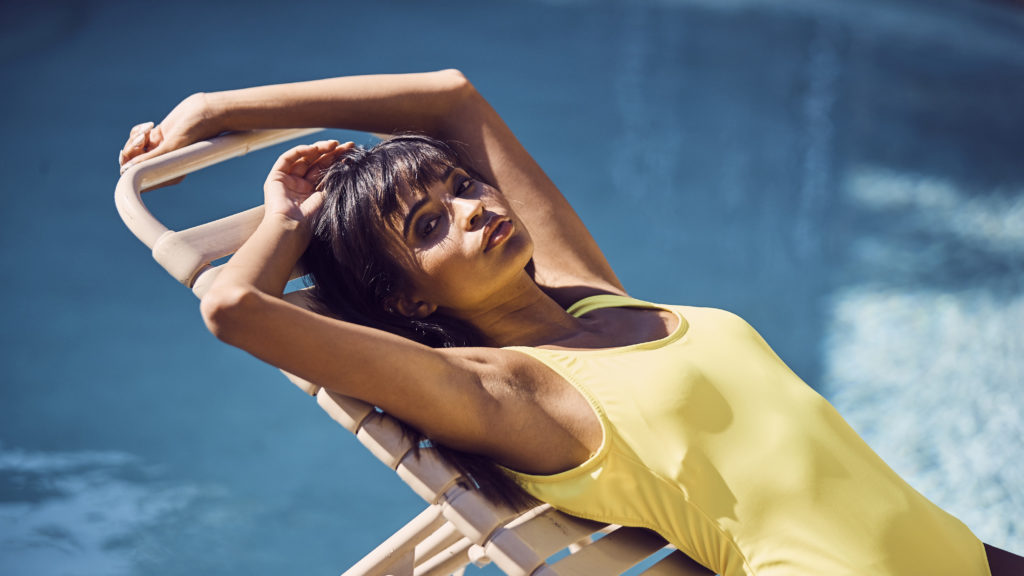A sucker for cool patterns and swimwear that flatters all female bodies, Melbourne designer Amelia Mercoulia was disappointed with the lack of options on the market.
Being a real summer gal herself, she grew tired of buying expensive pieces from famous international brands that would hardly last one summer season.
Having attended Box Hill and RMIT fashion design schools, Amelia was on the lookout for local brands, as well as being concerned about the environmental waste and sustainability of her wardrobe.
“I wanted some good-quality swimwear that was made locally and I didn’t want to look like every other person on the beach in summer,” says the young creative.
“For me, women should buy swimwear that accentuates their best assets and makes them feel comfortable in it.”

That’s how the idea of starting her own swimwear label got stuck in her head. Amelia started designing swimwear in 2014 and Baaby was born one year later.
“It had always been something I wanted to venture into,” she tells Neos Kosmos.
“I learnt how to make the patterns and sew swimwear at university. I wanted to create a brand that was high quality and ethically-made in Australia. No sweatshops!”
Amelia creates for women who are confident, sophisticated, fun, witty and clever, who know what they want and get it.
“Our products are fitted on various body types in the initial stages of design and manufacture to ensure a flattering and comfortable end result,” Amelia adds.
“Baaby pieces are 100 per cent ethically and locally manufactured, created from the finest Italian fabrics, woven from recycled fibres. This creates minimal waste by recycling and reducing our carbon footprint. It’s slave labour free.”

Amelia uses high-quality Lycra fibres imported from Italy to ensure Baaby garments are long lasting and retain elasticity. All designing and sampling is done in-house in Melbourne, while all other manufacturing remains in Australia and is completed by various local ethical factories under Fair Trade Australia. Collaborating factories are also visited first hand by Baaby staff to ensure conditions are ethical; the whole supply chain is completely transparent.
“I chose the recycled fabric,” she explains, “because it is durable and silky soft at the same time, and more sustainable than other materials.
“The breakdown of the fabric content means it is super resilient and won’t stretch out of shape or lose its elasticity easily. It’s firm on the skin and holds you in nicely without being so tight that it cuts in. I trialled a few different fabrics when starting out but this one had the best qualities.”
Amelia’s swimwear goes through repeated fittings throughout the design process and has several women with different body types try them on − including herself and her two sisters − comparing feedback in order to tick as many boxes as possible.
“Comfort and shape is super important,” she emphasises, explaining that it’s only natural some styles suit some bodies better than others. Her goal is to have varying styles that cater to all those body types, drawing on inspiration from everyday life.
“We need to feel comfortable, but stylish, too,” she says.

Looking cool is a basic part of the equation, but Baaby’s bold and sometimes outlandish vintage styles guarantee that.
Amelia’s vision comes straight from the 1980s and the natural looking bodies of the swimsuit models illustrated in the leading magazines of the time. Her collections hero bright prints and baby pastels, like fairy floss pink. She designs all the patterns herself, yet to satisfy lovers of the classics, she also makes every season’s styles in plain black.
“Baaby swimwear is classic yet playful. I get ideas every day from people I meet, fashions I see on the street, places, blogs, books, TV, magazines, art. Most of the time you won’t be looking for it and you see something and it’s a trigger,” she enthuses.
Greece is also an endless source of inspiration to which she returns every chance she gets. With a background from Sparta and Kalamata, Amelia knows what living on a beach means.
Her next goal is to see Baaby stocked worldwide, while venturing into menswear and selective clothing items for women.
“In the future, I want Baaby to be recognised as an ethical label,” she says.
“There is so much fast fashion out there that we are tempted by because of the price point. But if something is that cheap, you have to ask yourself why. Generally it will come down to the conditions that it has been manufactured and the quality of materials used. I want Baaby to always be known for its excellent quality and longevity.”
If you wish to find out more go to www.baaby.com.au








